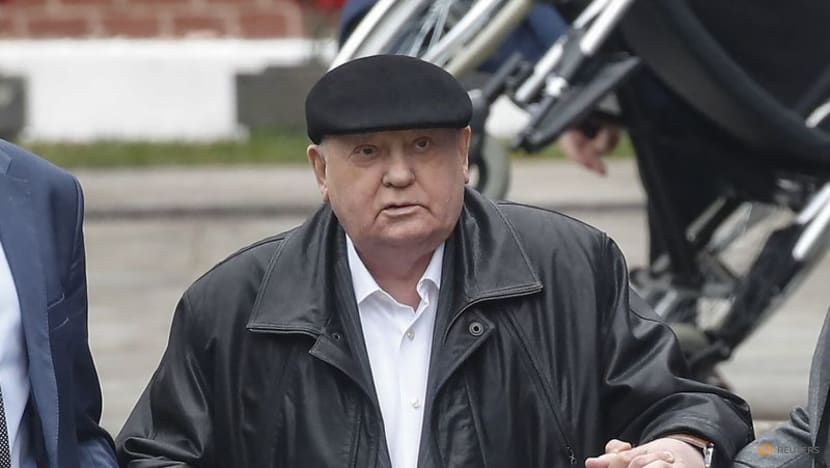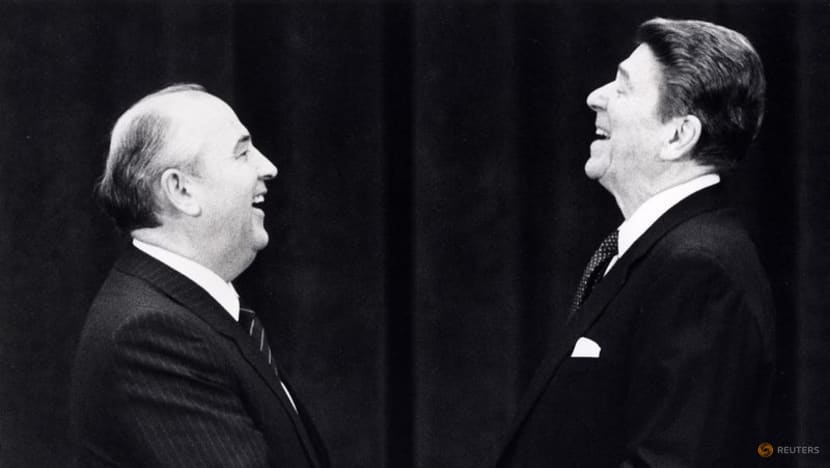Last Soviet leader Mikhail Gorbachev, who ended the Cold War and won Nobel prize, dies aged 91

Former Soviet President Mikhail Gorbachev arrives for the Victory Day parade, which marks the anniversary of the victory over Nazi Germany in World War II, in Red Square in central Moscow, Russia, on May 9, 2019. (Photo: REUTERS/Maxim Shemetov)
Mikhail Gorbachev, who ended the Cold War without bloodshed but failed to prevent the collapse of the Soviet Union, died on Tuesday (Aug 30) at the age of 91, hospital officials in Moscow said.
Gorbachev, the last Soviet president, forged arms reduction deals with the United States and partnerships with Western powers to remove the Iron Curtain that had divided Europe since World War II and bring about the reunification of Germany.
But his internal reforms helped weaken the Soviet Union to the point where it fell apart, a moment that President Vladimir Putin has called the "greatest geopolitical catastrophe" of the twentieth century.
"Mikhail Gorbachev passed away tonight after a serious and protracted disease," said Russia's Central Clinical Hospital.
Putin expressed "his deepest condolences", Kremlin spokesman Dmitry Peskov told Interfax. "Tomorrow he will send a telegram of condolences to his family and friends," he said.
Putin said in 2018 that he would reverse the Soviet Union's disintegration if he could, news agencies reported.
World leaders were quick to pay tribute. European Commission chief Ursula von der Leyen said Gorbachev, who was awarded the Nobel Peace Prize in 1990, had opened the way for a free Europe.
British Prime Minister Boris Johnson, citing Putin's invasion of Ukraine, said Gorbachev's "tireless commitment to opening up Soviet society remains an example to us all".
There was no immediate reaction from the White House or the US State Department. Former US Secretary of State James Baker described Gorbachev as "a giant who steered his great nation towards democracy".
WESTERN PARTNERSHIPS
After decades of Cold War tension and confrontation, Gorbachev brought the Soviet Union closer to the West than at any point since World War II.
"He gave freedom to hundreds of millions of people in Russia and around it, and also half of Europe," said former Russian liberal opposition leader Grigory Yavlinsky. "Few leaders in history have had such a decisive influence on their time."
But Gorbachev saw his legacy wrecked late in life, as the invasion of Ukraine brought Western sanctions crashing down on Moscow, and politicians in both Russia and the West began to speak of a new Cold War.
"Gorbachev died in a symbolic way when his life's work, freedom, was effectively destroyed by Putin," said Andrei Kolesnikov, a senior fellow at the Carnegie Endowment for International Peace.

This article was originally published on ChannelNewsAsia. Its inclusion on this website is solely for education purposes.
LET'S SHARE OUR THOUGHTS ON THE ARTICLE!


No comments
Share your thoughts! Tell us your name and class for a gift (: